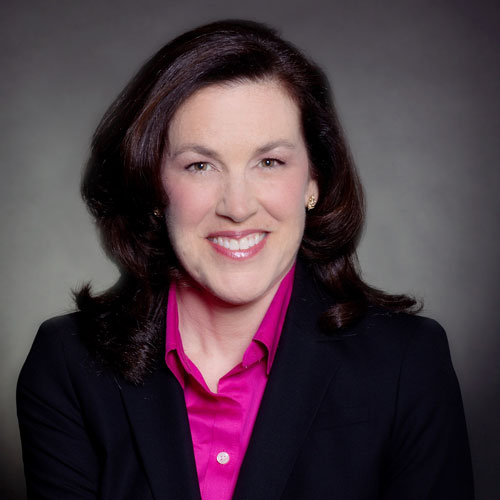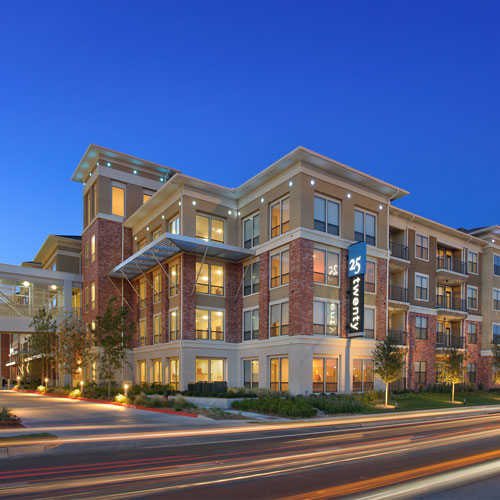You’ve been with Kimco for 18 years. What’s kept you at the company for so long?
Every day is something new, and Kimco has some unique strengths that help us move forward. We specialize in neighborhood and community shopping centers and have interests in 814 properties across 41 states, Puerto Rico, Canada, Mexico, and South America. Our management team not only knows the shopping center business but also the people in the shopping center business.
It seems that those relationships are especially important to your strategy.
That’s because we have cultivated deep relationships with a long list of diverse retailers on a national level such as T.J.Maxx, Walmart, and Home Depot as well as small shop operators like pizzerias, nail salons, and dry cleaners. We work with our tenants very closely, and we obviously want them to do well.
Has the strategy changed at all in recent years?
We’re focusing more on properties in core markets having strong demographic profiles. We’re also simplifying our business model by exiting South America and Mexico to concentrate mainly on the United States, with a few properties in Canada.
As you do all this, what’s most important from a legal perspective?
Our legal team has to protect the company while trying to make each deal happen.
And what’s the key to doing that well?
Due diligence. We have to know what we’re investing in. We have to know what the risks are and how we’ll create value for our shareholders.
What does that process look like?
It’s detailed and collaborative. We follow and consider many factors like financials and demographics as well as physical and environmental conditions. We vet out any and all issues. The environmental arena is especially important because once we buy a property, we’re liable. We start with a phase I environmental site assessment and inspect the property to evaluate current and past uses—as well as adjacent properties—that may have resulted in contamination.
What happens if your team uncovers issues on an otherwise good property?
We move on to a phase II study and offer the seller an opportunity to clean things up before the deal is done or structure a post-closing agreement. We usually agree to a 30-day due-diligence period, but we may need more time if issues arise.
Which types of tenants present the biggest environmental risks?
Dry cleaners, gas stations, auto-repair facilities, and historical industrial uses—really any tenant that uses chemicals. We have to know the risks and liabilities we assume by purchasing a property. As it relates to dry cleaners, they’ve traditionally used perchloroethylene—or, “perc”—in their process. It’s a chemical that the EPA says is likely a human carcinogen. It can seep into the soil and groundwater and can cause all sorts of problems.
Have you ever excluded any tenant that presents a risk?
We want to work with our tenants and help them stay in business. Dry cleaners provide good foot-traffic, as people have to come to the shopping center to drop off and pick up. They’re also Internet-proof. So, instead of forcing them out, we want to help educate them on environmentally friendly alternatives.
What are some of those alternatives?
Kimco has made tremendous strides in eliminating perc dry cleaners. When a tenant’s lease matures, we approach them about converting to nontoxic solutions. GreenEarth Cleaning is a good example of a company with a nonhazardous solution. We like them very much—and so do our tenants and customers—because they’re not creating an environmental hazard to our properties. Another option is for perc dry cleaners to simply convert to off-site cleaning and use our property as a pick-up-and-drop-off-only storefront.
But even if you convert all tenants to nontoxic cleaning, aren’t you still responsible if there’s contamination from a previous landlord?
As soon as you buy a property, you’re legally responsible for contamination, even if it’s 10 years old. That’s why we have such a thorough due-diligence process.
You were just named regional general counsel for the Northeast. What does the role entail?
I’m managing the workflow and making sure deals close, but more importantly, [I’m] being a business advisor. In my 18 years with Kimco—and previously with a large commercial real estate firm—I have been exposed to all facets of real estate work, so I have developed great expertise. This is a chance for me to get more deeply involved in the real estate and both understand and influence the strategies of what we’re going to buy, sell, lease, and redevelop.
What do you expect in the coming years?
Retail real estate fundamentals have been very good with increasing occupancy and rent growth. It’s an exciting time to be here.


